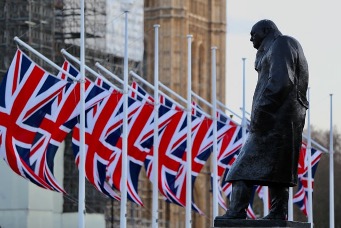Michael DeNobile of Oswego is an educator, author, and film critic. Below, Mr. DeNobile discusses literature making waves in the recent news cycle, for good or for bad.
Some people might not see the immediate connection, but lit news in 2021 is proving that today’s bestselling authors are influencing American politics.
Some are publishing controversial information on historical figures, while others are being finally recognized for their contribution to the industry through diversity initiatives. Others are using literature for political campaigning, proving that books are not just for casual reading in 2021 but a political weapon as well.
Here, the Michael DeNobile assignment takes a look at important literary developments in 2021 and how today’s literary scene is changing perceptions about contemporary life.
Abdulrazak Gurnah Wins the 2021 Nobel Prize in Literature
Abdulrazak Gurnah became the first Black African author in 35 years to win to Nobel Prize in Literature. The last black African winner was Wole Soyinka in 1986.
Critics, authors, and readers consider the large gap between these two winners a major concern, considering how many African writers have been published in the last three decades. It’s led many to raise an eyebrow regarding the perceived elitism of the Nobel Institute. However, public awareness of Abdulrazak Gurnah has remained very low among Western audiences.
Michael DeNobile says that despite being unrecognized for many years, Gurnah’s award is now being celebrated as a major step towards increased diversity and inclusion efforts.
The author is famous for a wide collection of novels interrogating postcolonial narratives in Africa, including his debut Memory of Departure and the acclaimed novel Paradise. Born in Zanzibar before coming to England to avoid persecution in the 1960s, his novels have consistently challenged colonial narratives about East Africa. Gurnah sheds light on the lives of those who remained in the region and those who fled during eras of persecution and unrest.
In contrast to many writers who might hang on the phone if they were aware that they had been nominated for the Nobel Prize, Gurnah was caught by surprise in his kitchen when the phone call came. He initially thought the call was a prank.
We hope that this award helps create greater exposure for Gurnah and other African writers that have important stories to tell about the poorly-understood consequences of colonialism.
Churchill’s Shadow: A New History Book Aims to Challenge Views of “The Greatest Briton of All Time”
Winston Churchill, the Prime Minister of Great Britain from 1940-45 and 1951-55, is one of the most beloved figures in the popular British imagination, according to Michael DeNobile. He was even voted the “Greatest Briton of All Time” in a 2002 BBC poll.
Churchill may be widely celebrated as the leader who helped Britain win World War II, but questions about his character and beliefs have lingered on the fringes for many years.
These questions are brought front and center in Churchill’s Shadow, a new book by Geoffrey Wheatcroft. The book examines perceptions of Churchill as an ideal wartime leader. Wheatcroft raises critical questions over his ideas of military strategy and wonders whether Churchill was perhaps more a skilled politician with a gift for public speaking than someone who masterminded victory over Hitler and the holocaust.
Of course, in tandem with questions over Churchill’s role in defeating Nazism, uncomfortable questions are raised over how Britons perceive their nation’s role in a war that featured many participants and had far more delicate politics than are acknowledged today.
Any evidence-based examination of a figure who is so close to a nation’s identity is bound to cause some controversy. It will be interesting to track the impact of this new book as to whether England’s perception of Churchill will change with this new information.
Toni Morrison’s “Beloved” Becomes Hot Topic in Virginia Gubernatorial Race
Toni Morrison is one of the most acclaimed authors alive today and was the last Black recipient of the Nobel Prize in 1993. Her novel Beloved remains one of her most celebrated literary achievements, winning the 1987 Pulitzer Prize. Given how rare it is for a Black author to achieve such an exalted place in the American literary canon, it may come as a surprise that the novel has been raised as a key issue in a race to become Governor of Virginia.
The Republican candidate, Glenn Youngkin, released a campaign ad that featured one Laura Murphy of Fairfax County. Murphy was at the head of a campaign against Beloved when it was released, alleging that it gave her son nightmares. Democrat opponents claimed that the campaign featured “racist dog-whistle politics” and that Youngkin’s approach risked increased divisions in the local population.
Beloved tells a tragic story of the consequences of slavery and includes themes that may be uncomfortable for many readers, but its ruthless exposition of the heart of racism and the effects on its victims has made it one of the most recognized and justifiably applauded novels in the American canon today. To see it being used as leverage in a political tug-of-war is unsettling for many fans of the book.
Moving Forward: Exposure and Understanding
The goal of publishing has always been to educate through exposure, tell stories that give the voiceless a voice, and give an audience a sense that their experiences are acknowledged and not forgotten. While America’s literary institutions are showing major steps forward with diversity and representation, some politicians are using literature as political leverage.
Regardless, Michael DeNobile expects that American literature news will continue to focus on authors’ effects on national political issues.








